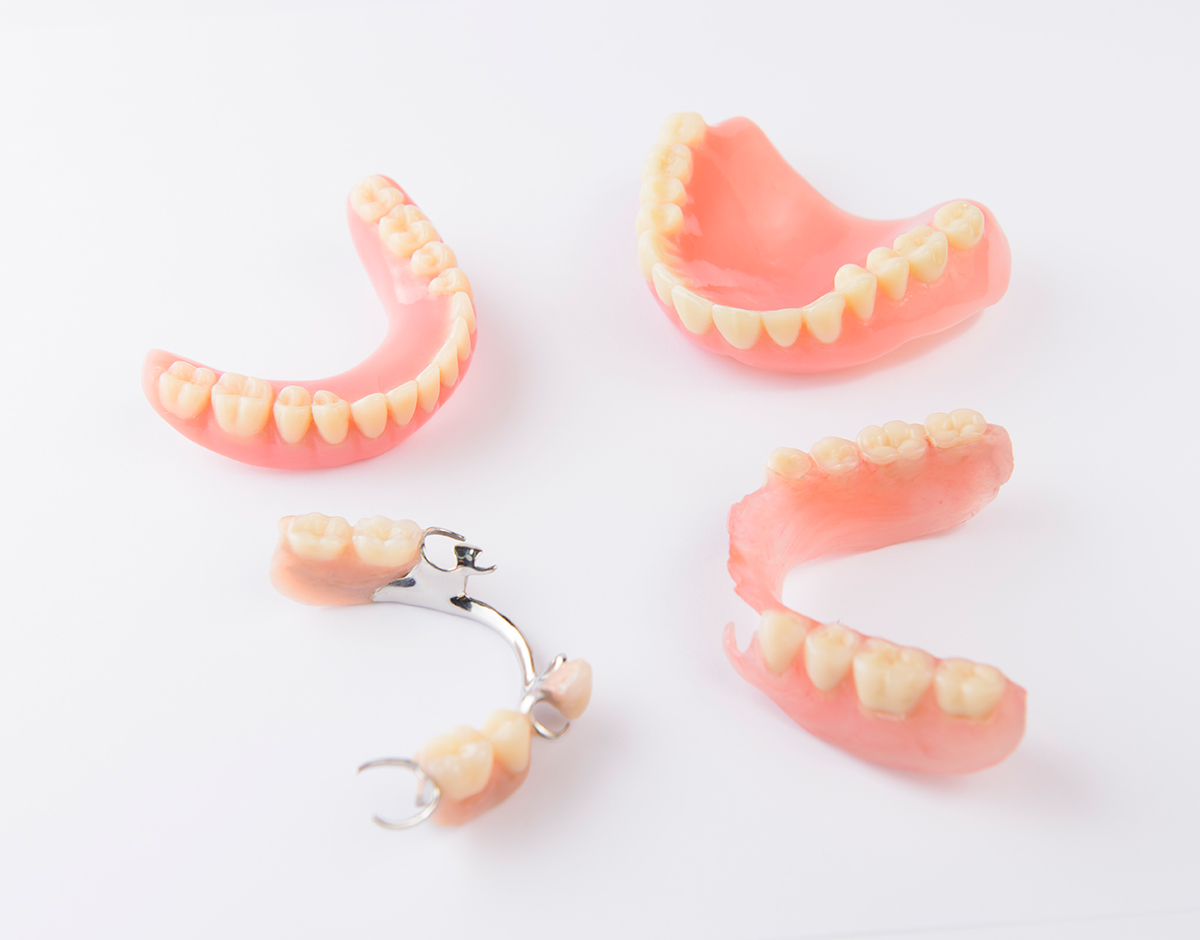Dentures
Dentures are dental prosthetics that are used to replace missing teeth. They can be either full or partial, and there are several different types of dentures available. Each type has its own set of advantages and disadvantages, and our dentist will be able to recommend the best option for your specific needs.
Here are some of the different types of dentures and their advantages and disadvantages:

Conventional Full Dentures
These dentures are designed to replace an entire arch of missing teeth. They are made after all of the remaining teeth have been removed and the gums have healed. The dentures are custom-made to fit your mouth, and they sit on top of your gums.
Advantages: These dentures are usually less expensive than other options, and they can be made relatively quickly.
Disadvantages: Conventional full dentures can be uncomfortable and may take some time to get used to. They can also slip out of place while eating or speaking which can be managed by additional use of denture “glue”.
Immediate Full Dentures
These dentures are similar to conventional full dentures, but they are made before the remaining teeth are removed. This means that they can be placed immediately after the teeth are extracted, so you don’t have to go without teeth during the healing process.
Advantages: Immediate full dentures can help you maintain your appearance and speech immediately after teeth removal.
Disadvantages: They may require adjustments and more maintenance compared to conventional dentures.
Overdentures
These dentures are similar to conventional full dentures, but they are designed to fit over dental implants or remaining natural teeth.
Advantages: Overdentures provide better support, stability, and retention compared to conventional dentures. They also help prevent bone loss and support the overall health of your mouth.
Disadvantages: They require implant placement, which increases the overall cost and will require a surgical procedure.
Partial Dentures
These dentures are designed to replace one or more missing teeth. They are attached to your remaining teeth with metal or plastic clasps.
Advantages: Partial dentures are more stable and comfortable compared to full dentures as they rely on the remaining natural teeth for support.
Disadvantages: The clasps that attach the denture to the remaining teeth can be visible and affect the appearance of the teeth.

In conclusion, there are several types of dentures available for people who have lost their teeth. Each type has its own advantages and disadvantages, and the best type for you will depend on your specific needs and circumstances. Book an appointment with our dentist to help you choose the right dentures to improve your oral health and quality of life.
